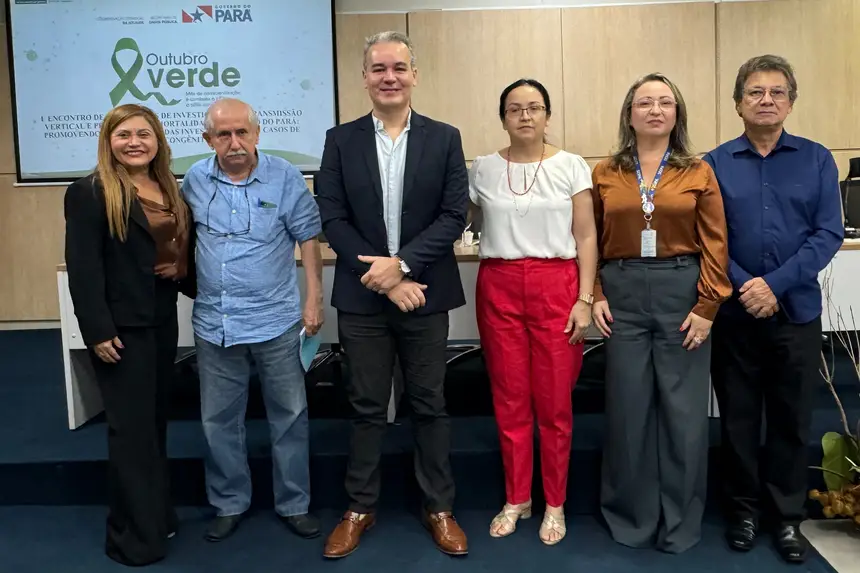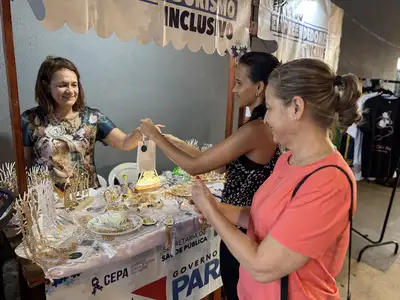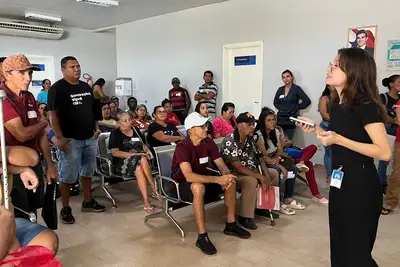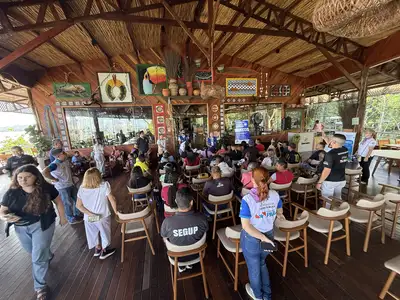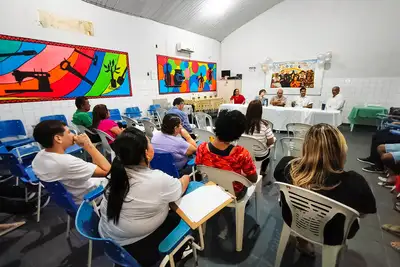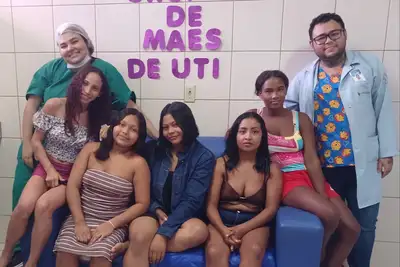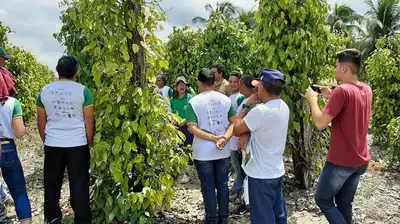State meeting promotes qualification for tackling congenital syphilis in Pará
Event brings together health professionals to strengthen investigations and improve prevention and control of vertical transmission in the State
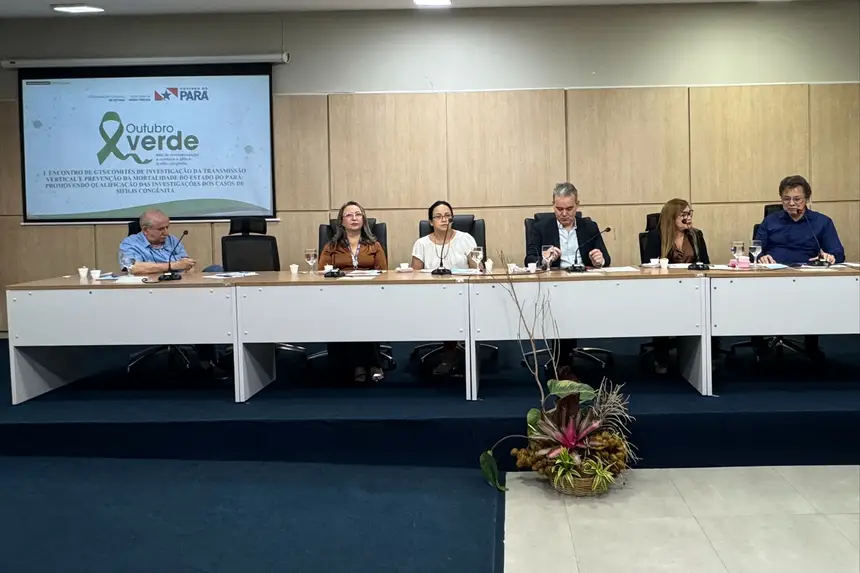
With the aim of qualifying the investigations of congenital syphilis cases and strengthening prevention and control actions of vertical transmission in Pará, the "I Meeting of Working Groups (GTs) and Committees for Investigating Vertical Transmission and Preventing Mortality in the State of Pará" began this Thursday, the 9th, at the auditorium of the Central Level of the State Department of Public Health (Sespa). The event continues until tomorrow, bringing together technicians from Sespa, representatives from Regional Health Centers, members of municipal and state GTs, as well as specialists from the Federal District.
During the opening, the Deputy Secretary of Administrative Management of Sespa, Edney Pereira, highlighted that although syphilis is an ancient disease with available treatment, it still represents a significant challenge for public health.
“Syphilis is a disease that can be controlled, has treatment, and is not one of the more complex protocols in public health. If it still exists today, we need to reread our guidelines and understand where we can act more. Our main challenge is to see what is still invisible, map the failures, and strengthen notification, because what is not notified simply does not exist. It is with data, surveillance, and prevention that we will be able to change this reality,” he stated.
Representing the Deputy Secretary of Health Policy Management, Heloísa Guimarães, the coordinator of Child Health at Sespa, Ana Guzzo, reinforced the importance of understanding the path of failures in the care network so that the confrontation is effective.
“We need to know where the difficulties occurred to correct the failures. The committee works with recommendation reports based on investigation and identification of avoidability of deaths. It is necessary to understand where the problems are to be able to correct them. Only then will we be able to strengthen the network and prevent these situations from repeating,” she pointed out.
The Director of Health Surveillance at Sespa, Roseana Nobre, emphasized the State's commitment to achieving national and global goals for the elimination of congenital syphilis. “We are here to debate, dialogue, and achieve our goals. Pará is engaged in this global movement and, with the joint effort of municipalities, we will be able to advance and eliminate vertical transmission by 2030,” she affirmed.
The technical responsible for Vertical Transmission of Syphilis at Sespa, Charliana Aragão, highlighted that the event was planned with a focus on municipal GTs and committees, which are directly responsible for local investigations. “Our challenge is to understand where the failures are in the care network so that each municipality can identify its bottlenecks and propose solutions. The role of the State is to support, monitor, and advise, but the execution happens in the territories. We want to grow together and change the reality we are living,” she said.
Representing the Council of Municipal Health Secretariats (Cosems), Dr. Antônio Jorge reinforced the role of municipal managers in articulating local policies. “It is essential that managers mobilize their teams and engage in public policies to respond to the problems occurring in the territories. This is how we ensure sanitary responsibility and strengthen the SUS,” he emphasized.
The consultant for Child Health at Sespa, Hélio Franco, also highlighted the importance of well-conducted investigations. “In countries where congenital syphilis has been reduced, investigation committees have played an essential role. Investigating well means understanding where the bottlenecks are and acting on them. We need to engage municipalities and the community in this cause because elimination is possible, but only with coordinated and permanent work,” he concluded.
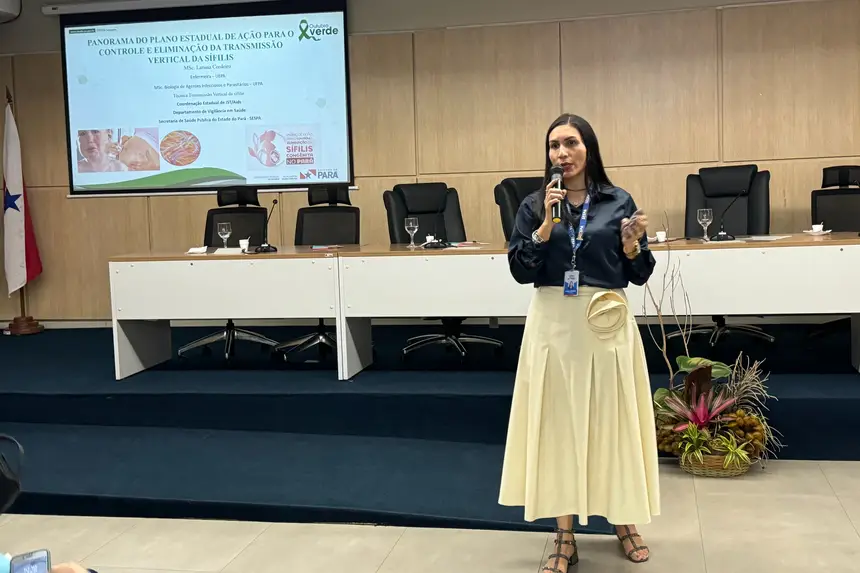
Syphilis: a preventable and treatable infection
Syphilis is a sexually transmitted infection (STI) caused by the bacterium Treponema pallidum. It can be transmitted through unprotected sexual intercourse or from the pregnant woman to the baby during pregnancy, causing what is known as congenital syphilis. Although it is a preventable and treatable disease, it still represents a significant public health challenge in Brazil.
Diagnosis can be made through rapid testing, available at all health units and Testing and Counseling Centers (CTA/SAE). Treatment is free through the SUS and is done with Benzathine Penicillin, depending on the phase of the infection. The main form of prevention is the regular use of condoms and proper monitoring of pregnant women and their partners during prenatal care.
Commitment to qualification
The meeting, promoted by Sespa, is part of the State Policy for Combating Syphilis, established by Resolution CIB No. 115/2022, and aims to qualify professionals from the GTs and municipal committees in investigating cases of congenital syphilis and exposed children, improving notification and strengthening the maternal-infant care line in the State.
The program continues until this Friday (10), with workshops and lectures on qualified investigation, successful municipal experiences, and integration of actions between surveillance, primary care, and maternity hospitals.


